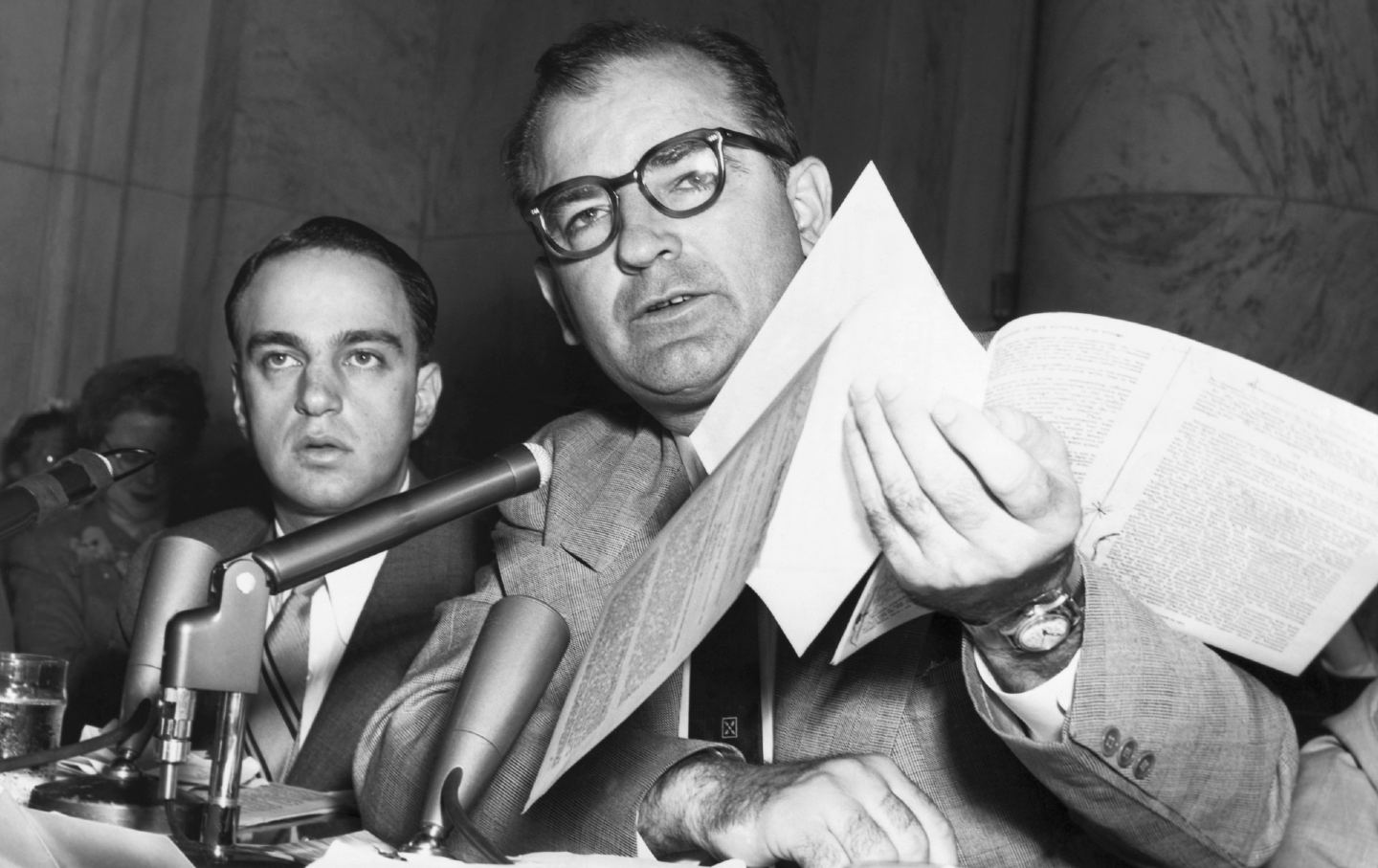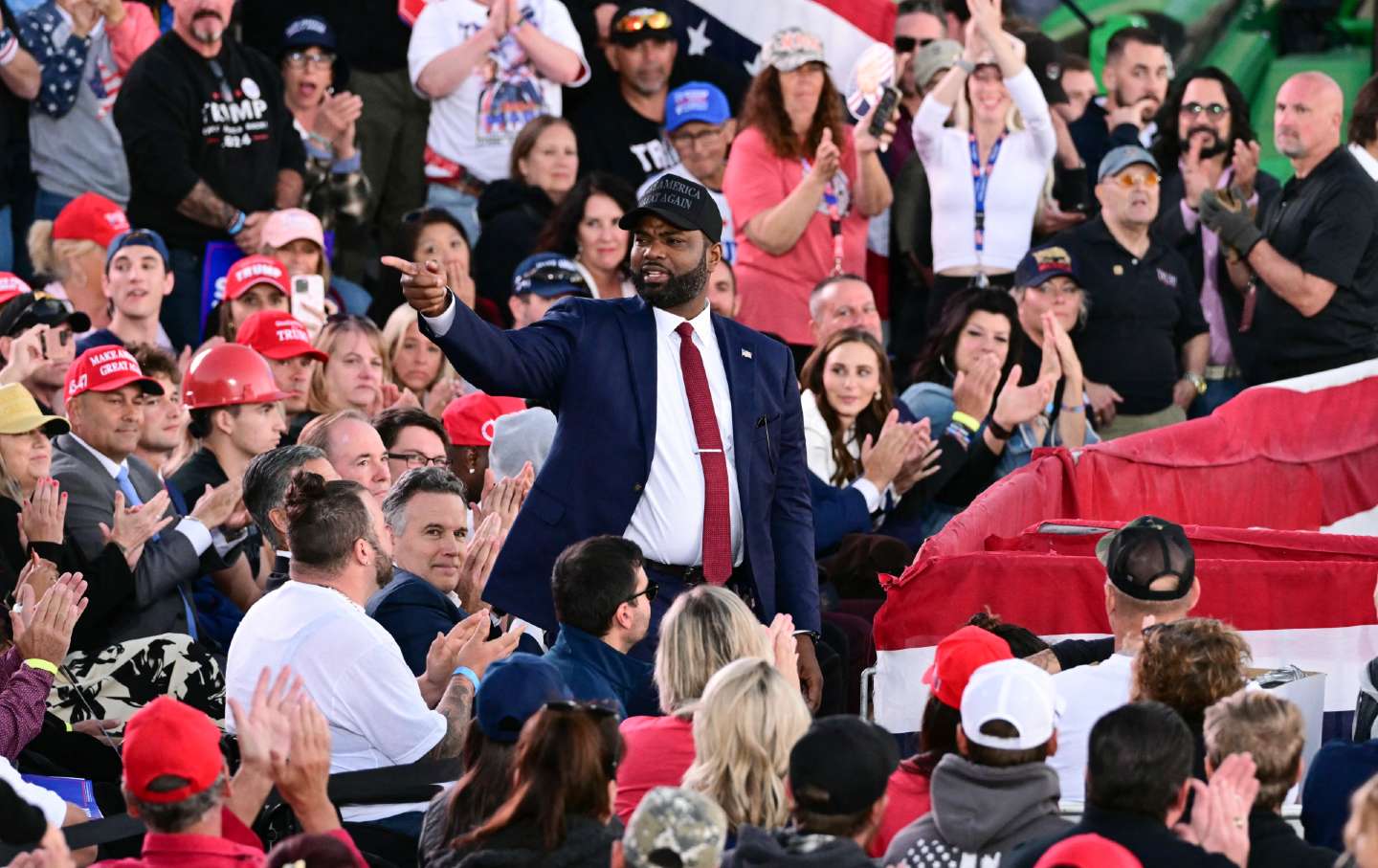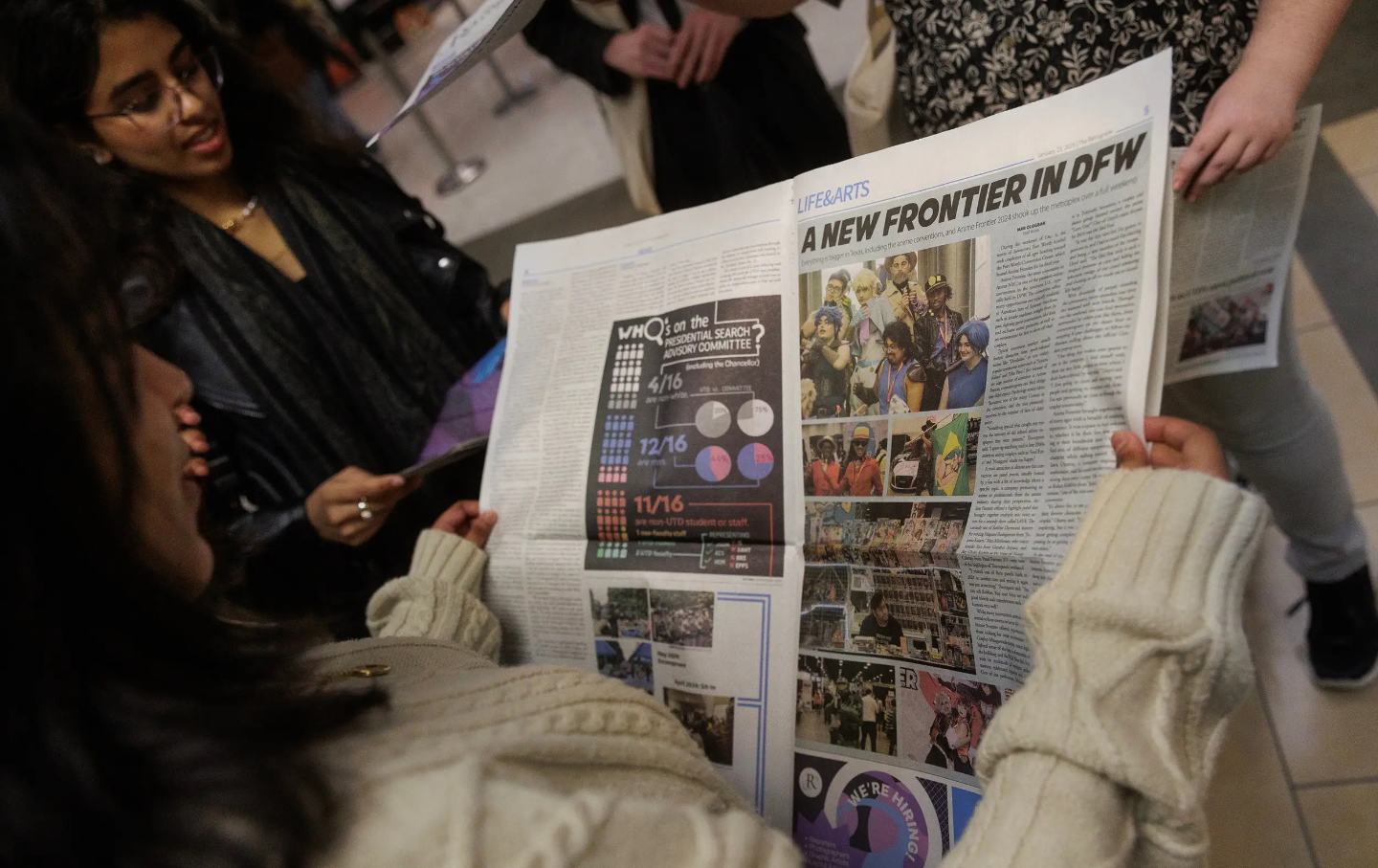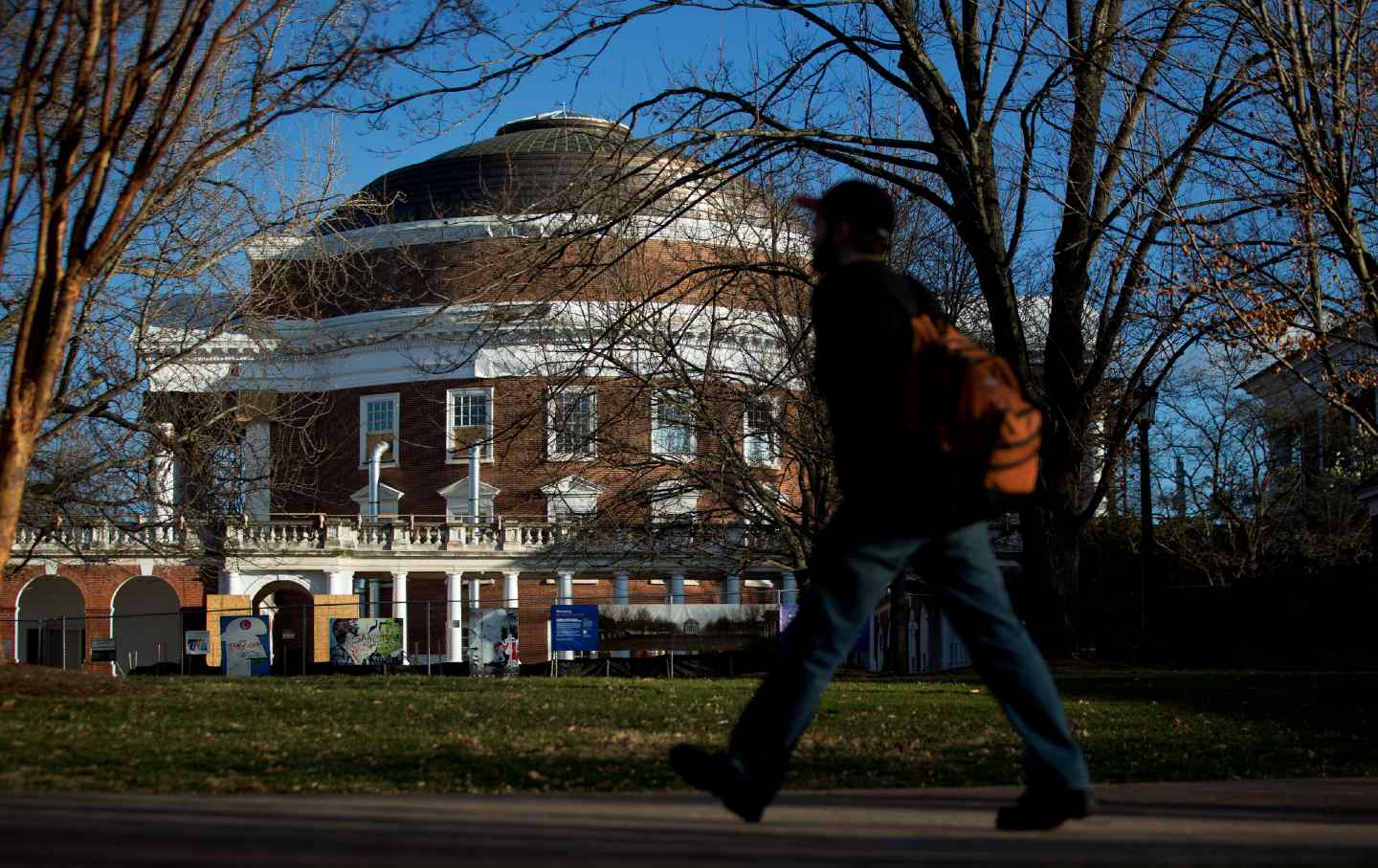I Already Knew Kamala Harris. In Chicago, I Got to Meet Kaitlyn Joshua.
As always, the DNC was an endurance grind. But my serendipitous encounter with a woman who embodies Harris’s reproductive justice agenda was the high point for me.
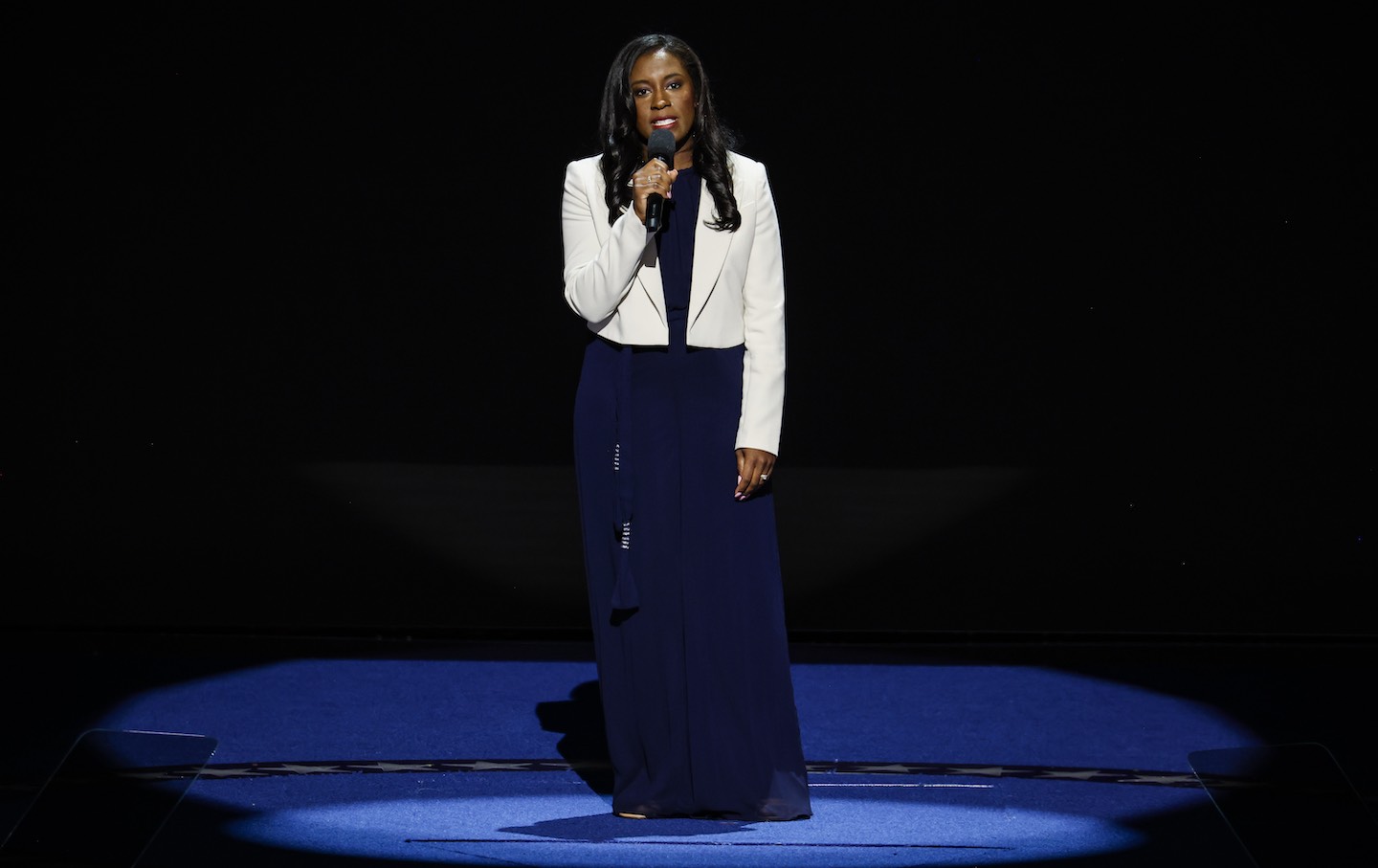
Kaitlyn Joshua speaks onstage during the first day of the Democratic National Convention at the United Center on August 19, 2024, in Chicago.
(Photo by Chip Somodevilla / Getty Images)
You don’t go to a Democratic National Convention for the speeches. Or even the parties. (Well, some people go for the parties.) It’s four days of blood, toil, tears, and sweat, as Winston Churchill might say. (And that’s before people started contracting Covid late last week! I have been spared, so far.)
But in Chicago, at my seventh DNC, I finally cracked the code. For starters, I wore sneakers, not even purportedly comfortable “high heels” (that’s where the blood, as in broken blisters, came from in prior years). I was not alone. This was the Democratic feminist revolution. Sneakers were everywhere!
Maybe most important, I realized it’s the serendipitous connections you make at these chaotic confabs that make them worth attending. Tuesday morning, I attended a breakfast to mark an innovative collaboration between the Planned Parenthood Action Fund (PPAF) and Moms Demand Action/Everytown, and wound up getting a coveted interview with Michigan Governor Gretchen Whitmer and catching up with one of my best friends, whom I haven’t seen for more than a year, and beloved sources from Hillary Clinton’s 2016 campaign.
Even more exciting, though: At a joint Emily’s List/PPAF/Reproductive Rights for All reception on Wednesday afternoon, I was lucky enough to perch at a table for a while. (Even in sneakers, your feet hurt after spending hours on them.) The folks who invited me to sit had another event nearby, and soon said their goodbyes. I noticed a pregnant woman standing near me and quickly invited her to sit down. She said a grateful “yes.”
She turned out to be Kate Cox, the Texas hero who sued for an abortion after her 19-week-old fetus was diagnosed with trisomy 18, almost always fatal, and after her gynecologist said being forced to give birth could cost Cox her future reproductive capacity. She was forced to leave the state to get the abortion care she needed. Cox was part of the Texas Democrats’ roll-call tableau on Tuesday night—another unbelievably moving part of the week—and she announced her pregnancy there.
“When I got pregnant, doctors told us our baby would never survive, and if I didn’t get an abortion, it would put a future pregnancy at risk,” Cox told the delegates. “But Trump didn’t care, and because of his abortion bans, I had to flee my home.”
“Today, because I found a way to access abortion care, I am pregnant again,” she announced. “And my baby is due in January, just in time to see Kamala Harris sworn in as president of the United States.”
Cox, who sat down next to me, was accompanied at the roll call by Cecile Richards, daughter of the late former Texas governor Ann Richards and former head of Planned Parenthood, who is facing her own health struggles.
As other friends joined us, soon I was holding a squirming 11-month-old boy, the adorable Liam, son of Kaitlyn Joshua, who addressed the convention on Monday night.
Somehow I hadn’t known Joshua’s story before that, although her tragedy occurred in 2022, when she was 11 weeks pregnant. She miscarried, and went to two emergency rooms, but could not get a Louisiana doctor to perform standard miscarriage care: removing the pregnancy tissue, which too many doctors in the states with abortion bans or near-bans worry might be considered an illegal abortion.
“Because of Louisiana’s abortion ban, no one could confirm I was miscarrying. I was in pain; bleeding so much that my husband feared for my life. No woman should experience what I endured, but too many have,” Joshua told the crowd.
“They write to me saying: ‘What happened to you, happened to me.’ Sometimes they’re miscarrying, scared to tell anyone, even their doctors. Our daughters deserve better.”
Joshua shares her story so that her 5-year-old daughter, Lauryn, will live in a better world, and so will Liam, the child conceived after her dangerous miscarriage. In fact, she has begun working with Cecile Richards to amplify her message—which includes a call for “reproductive justice,” the framing pioneered by Black women, in which abortion is a crucial right, but so is the right to have a baby, with the health care and social support that requires.
“It’s one thing to be a bold advocate for abortion rights in New York City—it’s a wholly different experience to be waging that fight from Baton Rouge, Louisiana,” Cecile Richards told me via e-mail. “Kait is one of the most fearless defenders of reproductive freedom I know, and a spokesperson for her generation. Among the many inspiring leaders emerging as a result of their own personal experiences with abortion bans, she is one of the very best. She combines years of organizing chops with personal courage in a way that is unique and energizing.”
Even as abortion rights advocates see Joshua as a crucial voice in the fight for reproductive freedom, it didn’t take long for Louisiana officials to come after her when she told her story at the DNC. Republican Attorney General Liz Murrill issued a pointed statement on X: “There is nothing in our bipartisan law that prohibits emergency care for someone having a miscarriage or any emergency situation during pregnancy. Nothing. Hard stop.”
“In fact, doctors are legally required to care for a pregnant woman who suffers an emergent health crisis, whether that’s appendicitis or a miscarriage,” the attorney general added.
New Orleans state Representative Mandie Landry, a lawyer who represents reproductive care providers, pushed back hard. “Are you really calling Kaitlyn a liar?” Landry replied. “And all the women like her who have publicly testified to the same treatment when they were suffering? Despicable.”
The Louisiana Right to Life communications director, Sarah Zagorski, echoed Murrill: “Protocol for miscarriage care under Louisiana law is clear,” Zargorski said. “Unfortunately, the DNC is utilizing a tragic story to elicit confusion and disapproval for pro-life laws. Their ultimate goal is to advance abortion-on-demand, for any reason, up until the moment of birth.” (Nothing in Zagorski’s statement is true.)
Popular
“swipe left below to view more authors”Swipe →Other local anti-choice groups jumped on Joshua as well.
When I ran into Joshua after she’d just read those statements, she was admittedly rattled. “Murrill was getting into murky water. If she actually communicated with the hospitals where I went, that’s a HIPAA [health privacy law] violation. She could have been in some legal trouble,” she told me later. But Joshua’s claims about being turned away from hospitals have been verified. “I shared my medical records with NPR and 60 Minutes and also with the campaign, so that my story was vetted and they can see firsthand that I did not receive care. And that is the point of all this.
“We know from all 22 states that have draconian abortion laws, even decent, well-meaning healthcare providers don’t know what to do, or what is legal. I feel like they’re gaslighting us here. ‘Obviously Kaitlyn should have received this care! It’s legal!’”
But Joshua wanted to add one thing to that story. “I do want to reframe my thinking. When I met you, I was letting the devil steal my joy, because I was so inundated by [Murrill’s] comment, and the domino effect of other organizations making comments. But I want to say: I have had an overwhelming amount of support since speaking at the DNC,” she said, referring to the abortion rights organizations and political leaders who have commended her for being a voice for the countless patients who are being turned away while in desperate need of care.
Joshua will travel to campaign for Vice President Kamala Harris this fall. She has met her twice, and particularly admires the way Harris enfolds her abortion advocacy in a “reproductive justice” framework.
“She does such a phenomenal job connecting the dots between basic maternal health care, the terrible maternal and fetal morbidity rates, as well as the abortion bans in the 22 states—which ironically or not have the worst maternal mortality rates in the country,” Joshua says. “She knows how to move from abortion rights to Black maternal and infant mortality, and getting to have a family. Yes, you get to choose—but when you want to choose to have your family, that requires a lot of supportive care.
“As a woman of color, as a mom of two kids, who’s known people to lose their lives this way, it’s the most powerful angle that Kamala Harris brings to the conversation.”
Abortion ban survivors brought a powerful message to last week’s convention. But I was struck by the multitude of messages on display on the main stage over four nights. We also met gun violence survivors. Elected Democrats who are military veterans. Labor leaders. “Coach” Tim Walz’s high school championship football team. As my friend Ilyse Hogue wrote in The Bulwark this week, the convention proved Democrats are no longer ceding the white male vote to Republicans. But they did it without sacrificing their historic commitment to women’s rights. It all felt additive; there was no pitting groups against one another.
As it happens, my first Democratic convention was 40 years ago, 1984 in San Francisco. It felt historic, and it was. Geraldine Ferraro became the first woman nominated to be vice president. The Rev. Jesse Jackson ran the most successful presidential campaign by a Black candidate until Barack Obama 24 years later, and held delegates rapt with his “God isn’t finished with me yet” speech. And New York Governor Mario Cuomo gave a stirring keynote that was supposed to show that Democrats were still the party of white Catholic ethnics. But while the Moscone Center rang with Cuomo’s rhetoric, white Catholic ethnics didn’t seem to hear it. Walter Mondale and Ferraro lost every state but Minnesota (Mondale’s home) and the District of Columbia.
It’s taken 40 years, but Democrats finally seem to know what to do with their diverse, majority coalition—majority, that is, when we turn out to vote.
Kaitlyn Joshua turned out to be my favorite new Democratic leader, but there was someone for everyone to admire if they were paying attention. Harris has 68 days to introduce herself, Walz, and all of these new leaders to the voters. The convention gave her a running start.

